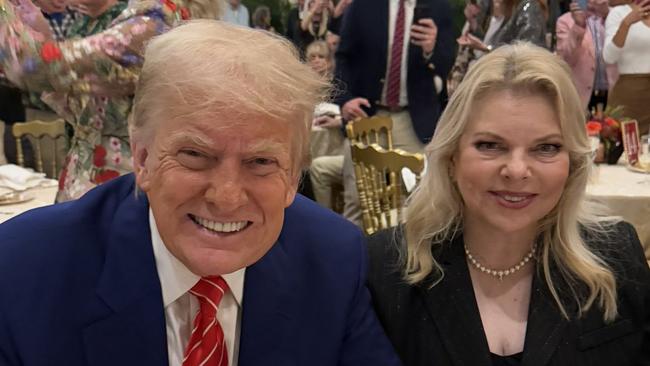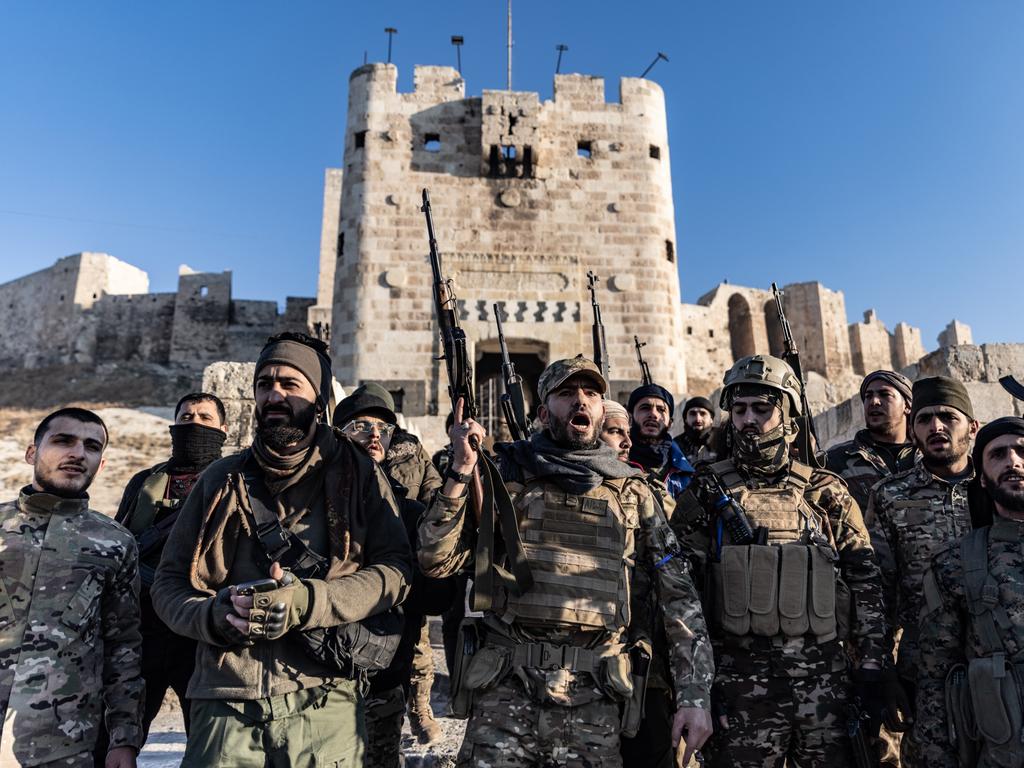Donald Trump ‘hyperbole’ could ‘bring peace closer’, Middle East expert says
Donald Trump’s threat to rain ‘hell’ on Gaza unless Hamas releases its Israeli hostages is ‘typical Trump hyperbole’ but could help create an off-ramp for the warring parties, Middle East expert Greg Barton says.

Donald Trump’s threat to rain “hell” on Gaza unless Hamas releases its Israeli hostages is “typical Trump hyperbole” but could help create an off-ramp for the warring parties, Middle East expert Greg Barton says.
“He’s not on the whole very sophisticated, and yet to underestimate him is always a mistake,” Professor Barton said.
The president-elect sent shockwaves through the region on Monday AEDT, vowing on his Truth Social network to hit the terrorist group “harder than anybody has been hit in the long and storied history of the United States of America” if it failed to release the hostages by the time he took office on January 20.
Professor Barton said there were no real military options available to force Hamas to give up the hostages given the terrorist group had withstood more than a year of relentless Israeli attacks.
It was more likely that Mr Trump was trying to create an opportunity for both Israeli Prime Minister Benjamin Netanyahu and Hamas to come to a peace agreement, he said.
“When he is on script, he can deliver quite calculated lines. And certainly Netanyahu needs an off ramp, and the Hamas leadership is out of options,” the Deakin University Professor told The Australian.
“They can fight an insurgent conflict, they can do the hit and run stuff, but there is no future in that for them.”
Strategic Analysis Australia director Michael Shoebridge said Mr Trump was likely hedging, for his own political purposes, against the prospect of a ceasefire while Joe Biden was still in the White House.
“After the Hezbollah ceasefire, Hamas has had the rug pulled out from under it,” Shoebridge tells The Australian.
“They (Hamas) probably now want a ceasefire and they want it reasonably quickly. Trump is vaccinating himself against a ceasefire happening before he takes over. He now will be able to take credit. It’s vaccinating himself against a late Biden success.”
Australian Institute of International Affairs chief executive Bryce Wakefield said “loud talk” was the president-elect’s “default for diplomacy”.
“This is unwelcome rhetoric, but it is the rhetoric that we can expect from Trump. He has used such rhetoric before with reference to North Korea,” Dr Wakefield said.
He said if Hamas was could be encouraged to come to the table through “an insane amount of violence” it would already have done so.
“It’s hard to see how much harder the people in the Gaza Strip can be hit, unless he is prepared to further breach international humanitarian law,” Dr Wakefield said.
The warning from Mr Trump came after a video message of 20-year-old Israeli-American hostage Edan Alexander was released by Hamas’ military wing, the Qassam Brigades, on its telegram channel over the weekend.
It was captioned “time is running out.”
In the proof-of-life video, Mr Alexander said he had been held hostage for more than 420 days and pleaded with Mr Trump to use the “full power of the US” to help secure his freedom.
He said he did not want to share the same fate as the American hostage Hersh Goldberg-Polin who was executed along with five others who were being held by Hamas terrorists. Their bodies were found in a tunnel under Rafah in late August.
His mother Yael Alexander spoke with Mr Netanyahu after the video was released, saying he promised he was “going to do whatever he can” to land a deal to secure the release of the remaining hostages.
A total of 251 people were taken hostage during the October 7 attack on Israel by Hamas with 117 having been freed or rescued, 71 having been killed and at 63 people still believed to be alive and held in Gaza.
In the last week, Iranian backed Lebanese military group Hezbollah also signed a 60 day temporary ceasefire agreement with Israel after the Jewish state mounted a two and a half month military offensive in Lebanon that took out the group’s leadership.
This has increased the pressure on Hamas in Gaza and left the terror group more isolated. National Security Adviser Jake Sullivan told CBS over the weekend that Hamas was “feeling the pressure because one of their main partners in crime here, Hezbollah, has now cut a ceasefire deal, and they thought that Hezbollah would be with them till the end”.
“They (Hamas) may be looking anew at the possibility of getting a ceasefire and hostage deal,” Mr Sullivan said “And we are working actively with all of the key players in the region, including Israel and Turkey and Qatar and Egypt, to try to bring that about. In the coming days, conversations will be happening, even this very day, to try to make that happen as soon as possible.”





To join the conversation, please log in. Don't have an account? Register
Join the conversation, you are commenting as Logout